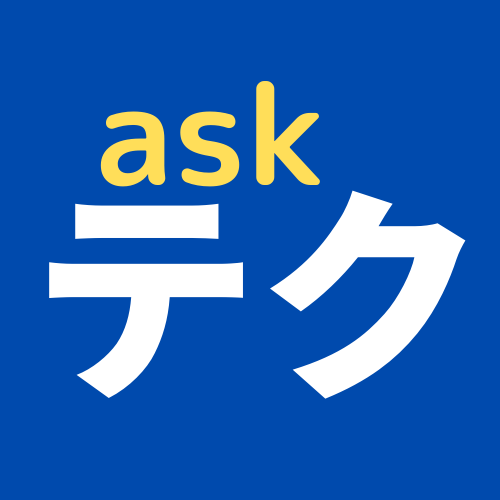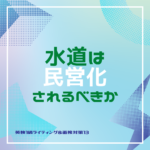目次
YES Or No: Is Sustainable Development Goal 4; Inclusive Education feasible in Japan by 2030?
POINTS: Disabilities / Second Language / Family Registry / Qualified Teachers / Stereotypes
観点: 障がい / 第二言語 / 戸籍 / 資格のある教員 / 固定観念
インクルーシブ教育の背景
1979年に、盲(目が見えない)学校・ろう(耳が聴こえない)学校・養護学校の義務化が決定し、普通学級から障がい者の生徒の排除が見られるようになりました。2001年に「障害者教育」と言う呼称が「特別支援教育」に変更され、盲学校・聾学校・養護学校が1本に統一されました。特別支援学校に通う事への偏見を失くそうという動きは見られますが、軽度の障がいを持つ児童を積極的に受け入れる普通学校は少数しかないようです。保護者や児童本人が希望しても、特別支援学校に行くよう勧められるケースが多いようです。
ですが、自閉症の子供が普通学校に通い、楽しく中学3年間を過ごし、卒業後も夜間の普通高校に進学したケースもあるようです。クラスメイト達は、「その子のおかげで、みんな協力し合うようになり、他人を思いやれるようになった。一番楽しい、思い出深いクラスだった」と回想しています。
職場での多様性の受容の重要性が叫ばれて久しいですが、子供の頃から多様性を受け入れることが自然になっているほうが、お互いに働きやすい環境になるのではないかと思います。
インクルーシブ教育では、障がいをもつ子供、日本語が母国語でない子供だけでなく、性的マイノリティーの子供たちや、男女間の平等性についても論じる事ができますね。
インクルーシブ教育、日本でどうすれば進むのか 「やってあげる」から「やらなきゃいけない」へ
国連が日本政府に勧告「障害のある子どもにインクルーシブ教育の権利を」(野口晃菜) – 個人 – Ya

賛成派:包括的教育は実現可能である (語数 247 語)
YES Or No: Is Sustainable Development Goal 4; Inclusive Education feasible in Japan by 2030?
POINTS: Second Language / Family Registry / Qualified Teachers
Introduction
Most children in Japan could access equal education opportunities by 2030 if the government swiftly improved the following points; an increase in the number of special education teachers and tutors for the Japanese language, and enhancement of the public awareness that children without family or residential registry CAN go to school.
日本にいるほとんどの子供たちは、もし政府がつぎの事を迅速に改善するならば、2030年までに平等な教育の機会に恵まれることでしょう。改善点とは、特別支援教師と日本語を教える教員の人数増員と、戸籍や住民登録のない子供たちも学校に通う事ができるという事実の周知徹底、です。
Discussion 1
Only a limited number of special education teachers is available and preferentially allocated to special-needs schools. This may force regular schools to refuse children requiring special assistance. Such teachers should always be available at mainstream schools as well. The government should, therefore, provide incentives to enhance their number.
特別支援教師は限られた人数しかおらず、かつ彼らは優先的に特別支援学校に配置されています。こういった状況により、普通学校は特別な支援を必要とする子供たちの入学を拒否せざるを得ません。特別支援教師は普通学校にも常在すべきです。そのために、政府は奨励金などを出し人数を増やすよう努めるべきです。
Discussion 2
Similarly, many children whose mother tongue is not Japanese struggle to catch up with classes due to language barriers. They often can’t afford expensive Japanese lessons with private tutors. For them, mastering Japanese as quickly as possible is the first step to inclusivity in classes. Thus, the government should assign some language tutors to each school to support them.
同様に、母国語が日本語でない子供の多くが、言語の壁のせいで授業についていくのに苦心しています。彼らは日本語の家庭教師に高額を払う余裕もありません。彼らにとっては日本語を出来る限り早く取得することが、平等な教育を受ける第一ステップとなります。ですから、政府はすべての学校に、日本語指導教員を配置し子供たちをサポートするべきです。
Discussion 3
Finally, it is high time that the government corrected a rumour implanted in society that children without family or residential registry cannot attend school. Some people, indeed, have grown up without even mandatory education. This should be resolved quickly if the government started a campaign, using any media to promote the corrected information.
最後に、社会常識となってしまっている、戸籍や住民登録のない子供たちが学校に行けないという噂を、政府は訂正すべきです。実際、義務教育さえ受けずに育った人もいるのです。もし政府が正しい情報を知らせるべくあらゆるメディアを使い広告すれば、すぐにこの問題は解決するはずです。
Conclusion
Although some children may still need to be persuaded to study in common schools, the government should at least have the schools ready for inclusive education. Japan will, then, have possibly achieved Goal 4 by 2030.
普通学校で勉強するよう説得が必要な子供もいるかもしれませんが、政府は少なくとも包括的教育のために学校を準備するべきです。そうすれば、2030年までに日本ももしかしたらSDGs目標4のインクルーシブ教育を達成することが出来るかもしれません。
おススメ記事:英検1級英作文|意見論述|宇宙植民:観点とキーワードを整理し、両方の立場で論じる
賛成派: 全文(音声付き)
Most children in Japan could access equal education opportunities by 2030 if the government swiftly improved the following points; an increase in the number of special education teachers and tutors for the Japanese language, and enhancement of the public awareness that children without family or residential registry CAN go to school.
Only a limited number of special education teachers is available and preferentially allocated to special-needs schools. This may force regular schools to refuse children requiring special assistance. Such teachers should always be available at mainstream schools as well. The government should, therefore, provide incentives to enhance their number.
Similarly, many children whose mother tongue is not Japanese struggle to catch up with classes due to language barriers. They often can’t afford expensive Japanese lessons with private tutors. For them, mastering Japanese as quickly as possible is the first step to inclusivity in classes. Thus, the government should assign some language tutors to each school to support them.
Finally, it is high time that the government corrected a rumour implanted in society that children without family or residential registry cannot attend school. Some people, indeed, have grown up without even mandatory education. This should be resolved quickly if the government started a campaign, using any media to promote the corrected information.
Although some children may still need to be persuaded to study in common schools, the government should at least have the schools ready for inclusive education. Japan will, then, have possibly achieved Goal 4 by 2030.
おススメ記事:英検1級英作文|要約問題|独学練習問題と解説|フェルメールの贋作:偽物に魅了される理由
反対派: 包括的教育は実現可能ではない (語数 247語)
YES Or No: Is Sustainable Development Goal 4; Inclusive Education feasible in Japan by 2030?
POINTS: Disabilities / Qualified Teachers / Stereotypes
Introduction
Despite all the benefits of inclusive education, it seems almost impossible to achieve it in Japan by 2030 because of social expectations, the lack of special education teachers and the disabled-unfriendly school buildings.
その利点に関わらず、社会的責任、特別支援教師の不足、障がい者が利用しずらい学校施設であるという理由から、2030年までに日本が包括的教育を達成することはほぼ不可能なようです。
Discussion 1
In Japan, it is customarily believed that disabled children can learn more efficiently and comfortably when separated from non-disabled students and vice versa. To meet such social expectations, even children with a mild developmental disorder or high-functioning autism tend to avoid potential experiences of discrimination and choose special schools, where they could learn in the mainstream system. The expectations may be the main obstacle to shifting to inclusivity.
日本では、障がいのある子供たちはそうでない子供たちと分けた方が効果的にかつ快適に学習する事ができる、そしてその逆もしかりと、習慣的に信じられています。このような社会的期待のために、低度の発達障害や高機能自閉症の子供たちでさえ、もっとも彼らは普通学校で学ぶことが可能であるのですが、差別を受ける可能性をなくすため特別支援学校を選ぶ傾向にあります。こういった社会的期待は包括的教育への主な障害となっているのかもしれません。
Discussion 2
The lack of special education teachers is another issue. In Japan, teachers are often exhausted, and many resign due to sickness, with half being mentally ill. This is primarily because of their overwhelming workloads and overtime. Under such circumstances, nothing could encourage them to enroll in extra courses for special education. Boosting the number of teachers qualified for special needs is seemingly not straightforward.
特別支援教師数の不足も問題のひとつです。日本では、教員は疲れ果てており、多くの教員が疾患で辞職しています。そしてその半分は精神疾患です。これは主に、圧倒的な仕事量と時間外労働が原因です。このような状況の下では、特別支援教師のためのコースを受講する気にはならないでしょう。特別支援教師の資格取得者数を押し上げるのは、簡単なことではないようです。
Discussion 3
Similarly, schools are not ready to accommodate all kinds of disabled students. Most school buildings are not barrier-free, so children in wheelchairs can not move around freely. Likewise, the majority of schools are inappropriate for blind children. Most school facilities are not safe or appropriate for disabled students learning with the non-disabled.
同様に、学校自体もすべてのタイプの障がい者を受け入れる準備は出来ていません。バリアフリーでない学校がほとんどですから、車椅子の児童は自由に動き回る事は出来ません。同様に、大多数の学校は目の見えない子供たちには不適切です。学校施設のほとんどは、障がいのある生徒がそうでない生徒と一緒に学ぶには安全でなく、ふさわしい場所ではありません。
Conclusion
The issues mentioned above cannot be solved instantly, particularly changing mindsets and enhancing the number of special education teachers. It seems, therefore, unfeasible to achieve inclusive education by 2030 in Japan.
前述の問題は、特に思考態度を変える事や特別支援教師の人員増加は、容易に解決できるものではありません。ですから、日本で2030年までに包括的教育の達成は実行不可能なように思います。
おススメ記事:英検1級英作文対策|要約問題|独学できる練習問題:深刻化する消防士不足とその影響
反対派: 全文(音声付き)
Despite all the benefits of inclusive education, it seems almost impossible to achieve it in Japan by 2030 because of social expectations, the lack of special education teachers and the disabled-unfriendly school buildings.
In Japan, it is customarily believed that disabled children can learn more efficiently and comfortably when separated from non-disabled students and vice versa. To meet such social expectations, even children with a mild developmental disorder or high-functioning autism tend to avoid potential experiences of discrimination and choose special schools, where they could learn in the mainstream system. The expectations may be the main obstacle to shifting to inclusivity.
The lack of special education teachers is another issue. In Japan, teachers are often exhausted, and many resign due to sickness, with half being mentally ill. This is primarily because of their overwhelming workloads and overtime. Under such circumstances, nothing could encourage them to enroll in extra courses for special education. Boosting the number of teachers qualified for special needs is seemingly not straightforward.
Similarly, schools are not ready to accommodate all kinds of disabled students. Most school buildings are not barrier-free, so children in wheelchairs can not move around freely. Likewise, the majority of schools are inappropriate for blind children. Most school facilities are not safe or appropriate for disabled students learning with the non-disabled.
The issues mentioned above cannot be solved instantly, particularly changing mindsets and enhancing the number of special education teachers. It seems, therefore, unfeasible to achieve inclusive education by 2030 in Japan.
おススメ記事:英検1級アウトプット完全攻略(予想問題リスト)
まとめ
モデルエッセイでは、あまり深く論じてはいませんが、いまの日本の学校のカリキュラムや教育制度の中でインクルーシブ教育を達成するのは、非常に難しい気がしました。現状の詰め込み式授業や、大学受験で成功するための勉強が基本となっている日本では、効率性が最も重視されてしまうのではないかと思います。授業中に自閉症などの子供たちに個別に注意を払い時間を割くことは難しいように思います。ですから、様々なタイプの生徒が一緒に学ぶことに意義を見出すことが出来るカリキュラムに変更すること、「自分で考えること、調べること、皆で論じ合うこと」を念頭においたカリキュラムへの変更は必要不可欠であるように思います。
今年9月には国連が日本政府にインクルーシブ教育に関し勧告を出しました。本気でSDGs目標4の達成を目指すなら、上辺だけでなくもっと深く考える必要があることを実感します。インクルーシブ教育は、障がい者のためのみならず、それ以上に障がいを持たない子供たちの内面的成長にとても役立つはずです。




